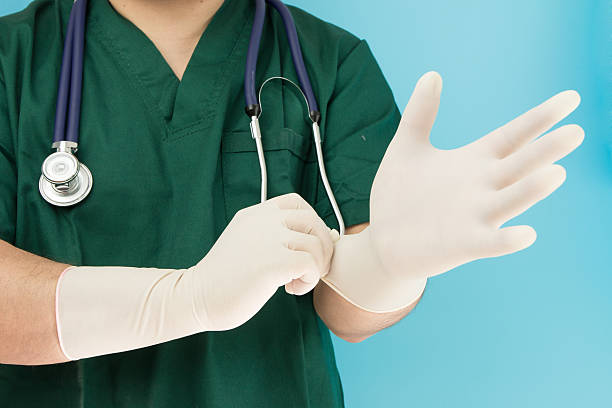Call Us: +8618816800624 / +8618816802426/ +8618816802430 Email Us: sales@pidegreegroup.com
Views: 8 Author: Pidegree Publish Time: 06-14-2018 Origin: Pidegreegroup

Hospital gloves represent cleanliness and order where body fluids and microscopic bacteria spread. We know that wearing gloves can protect medical staff and patients from infectious infections - and provide the necessary hygiene to ensure that patients receive optimal care.
From the prevention of blood-borne pathogens to the prevention of chemical burns, hospital gloves have a long way to go to fight infections and maintain a clean environment. Under the knife, they have six ways to protect you.
1. Wash hands isn't enough
Handwashing does a lot to protect users from pathogens. Therefore, we will never say that you should not bother you to wash your hands and not wash your hands. According to a report from the CDC, some hospital studies have shown that if you do not wash your hands, it is related to the spread of infections in medical institutions.
Moreover, this lack of attention is the basis for many outbreaks. The study also showed that hand hygiene alert can help reduce the number of infections transmitted to patients during hospitalization.
Therefore, with this in mind, healthcare professionals do spend a lot of time washing their hands. However, this does not mean that they are 100% sterile. Sterile gloves are added to the mixture to provide the patient with a layer that prevents bacteria and viruses from being missed during the washing process.
2. Gloves are barrier that block body fluids
One of the main risks of first aid or medication is body fluids. Blood, vomit, urine and feces can cause cross-contamination. Especially if this person has an open wound.
We all began to teach this kind of blood very early, and other liquids must be protected to the greatest extent. In the treatment of patients, the work of gloves is to prevent the spread of hepatitis B and hepatitis C, HIV and a series of diseases.
The skin itself does provide protection against infection or disease, but our natural defense may not be enough. In the case of HIV patients with a weak immune system, gloves protect workers from spreading pathogens to patients who receive care.
3. Suitable fit gloves - The second layer protects the skin
In order to complete their work, the gloves need proper cooperation. Too tight, limited mobility, gloves may tear during use. Too loose, gloves will do bad work to rule out potential pathogens.
When work gloves are not suitable, they do not allow control and protection to perform the task at hand. Doctors and nurses rely on their work touch, and inappropriate gloves can have a negative impact on their ability to treat patients.
Unsuitable will reduce flexibility, causing your hand to sweat, or obstruct. Whenever you need to change the hospital gloves, it is very important who is responsible for ordering supplies. Even if this means ordering multiple sizes, you can't cut corners in terms of safety.
4. Gloves also provide a protective layer for needling and other sharp objects
Hospital staff and staff in the funeral business, law enforcement, and other areas such as garbage collection are exposed to needles or other dangerous equipment.
Gloves, while not perfect PPE (Personal Protective Equipment), help prevent items such as broken glass, scalpels and bleeding devices, broken glass - all of which can cause injuries and spread blood-borne infections.
Some suppliers wear two sets of gloves, while other suppliers choose a pair of gloves designed to prevent needles. Adding texture to nitrile gloves can help medical professionals to avoid harm and cross-contamination.
5. Gloves to prevent dangerous chemicals
Another key use of hospital gloves? Anti-chemicals. Although most uses of gloves in the healthcare field revolve around them as a means to prevent the spread of disease, gloves play a crucial role in protecting users from radiation therapy, chemotherapy and other chemicals.
Chemicals used in the healthcare environment, such as certain drugs or laboratory materials, may be absorbed by the skin, causing medical personnel to have unwanted side effects.
6. Nitrile Gloves - Examples of reducing latex allergy
Although latex allergy is usually not fatal, why use gloves with negative reaction potential?
Latex hypersensitivity is often more common in people who have frequent contact with allergens - so doctors, nurses, and medical assistants may experience allergic reactions due to repeated use.
At present, nitrile gloves are more common. First of all, they are made of synthetic rubber - reducing the risk of allergic reactions. Latex-free gloves are also more resistant to puncture than their natural gloves, protecting hands from pathogens, chemicals, stabs, and cuts.
Email Us: sales@pidegreegroup.com
Add: Room 418, Building A5, NO.8 2nd Hezhan Street,
Baiyun, Guangzhou, Guangdong, China
Tel: 020-29836025
Mob: +8618816800624 / +8618816802426 / +8618816802430